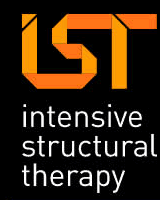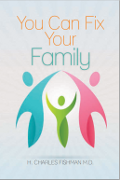Case 3: Major depressive disorder and possible eating disorder, frequent self-harm
Patient Details:
16 year old female inpatient client
Presenting problems:
- Presents with a number of borderline type behaviors such as frequent self-harm (in inpatient unit due to superficial cutting on arms and expressed suicidal ideation with no intent or plan). Patient has tried to take pills more than 30 times over the last couple of years. Every time she has taken them she tells her mom straightaway.
- Diagnosis of Major Depressive Disorder (MDD)
- History of eating disorder symptoms
Family information and background:
- Patient lives with her mother and stepfather.
- Patient is the product of IVF. Her mother was 42 when she was born. Her mother adores her and sees her as a miracle as she never thought she could have children; she treats her like she is much younger than 16.
- Mother and stepfather have been together for about 5 years; patient has never got along well with him. She says the stepfather used to comment on her weight and appearance.
- She has an older step-sister who used to live with them but who has recently gone to college, she used to buffer the conflict between the parents.
- Patient’s biological father is not involved in her life and is incarcerated for substance abuse. She has never had any contact with him.
- She is very thin and attractive but has a history of being bullied around weight and body image at school. Kids tease her because she is part African American.
Clinician’s formulation:
The clinician is unsure how to formulate this case from a family systems perspective but believes from an individual perspective that the client has MDD.
What has been tried clinically?
Currently trying to stabilize the girl. Depression is present and she has several negative cognitive distortions going on. The staff at the inpatient unit wanted her to go to a DBT program but her mother went against this. We are thinking about doing cognitive therapy and trying to help her develop better coping mechanisms she can deal with being overwhelmed instead of immediately thinking about overdosing.
Specific concerns:
The therapist would like to know how to understand this case from an IST perspective and prioritize treatment.
How this consultation can help:
The therapist would like some guidance around understanding the system and treatment.
Dr. Fishman’s advice to the therapist:
First of all this is a very rigid system. In my experience, young people who are suicidal are living in very rigid systems. In these systems, the threshold for change is so high that the only way they can get the system to respond is by engaging in something as dramatic as suicidal behavior. The theater quality to this behaviour-she informed her mother immediately after each OD.
Furthermore, this girl was conceived when mother was 42 she is seen by mother as a miracle child. Therefore, she is treated like she is special and different and this makes her vulnerable. She and her mother are very close. Mother’s marriage has likely led to tremendous stress on the mother and daughter relationship, furthermore, if you understand depression as loss, her mother’s marriage is a loss to the girl.
The mark of good therapy is what you exclude. Where is Rome burning in this family? This girl is so profoundly triangulated and she cannot have a better relationship with her stepfather. That her bio father is not in the picture makes the stepfather all the more important, and the distance between them more of a loss. I cannot see the loss but you can certainly see the triangulation and reducing this triangulation is what I would focus on in therapy with this family.
I would work with both the family and the parent relationships and also encourage the family to help the girl to find sources of confirmation according to her interests. This will hopefully reduce the loss of Mom’s marriage and give her appropriate extra familial sources of support and growth.


